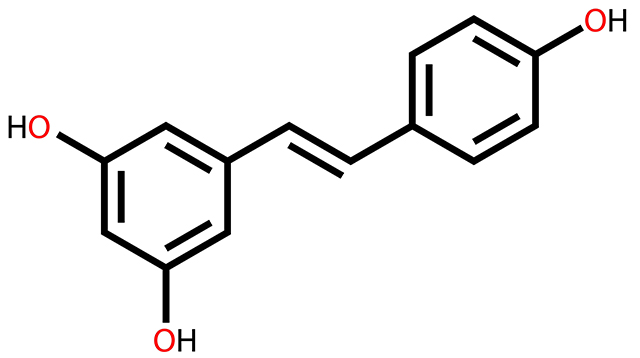Do you have PCOS? Clinical trial suggests taking resveratrol to control your symptoms
03/06/2019 / By Michelle Simmons

Polycystic ovary syndrome, better known as PCOS, is the most common endocrine problem affecting women of childbearing age. According to an international study, this condition — commonly associated with an overproduction of androgenic hormones, as well as infertility and diabetes — can be treated with resveratrol, a natural polyphenol found in wine and grapes called resveratrol.
Previous studies have shown that resveratrol has the ability to reduce the production of androgen. Stemming from this evidence, a team from Poznan University of Medical Sciences in Poland and the University of California, San Diego looked at the endocrine and metabolic effects of resveratrol on PCOS.
For the study, the research team recruited 34 women who suffer from PCOS, who were then treated every day with either a 1,500 mg of resveratrol or a placebo for three months. In addition, they measured the participants’ testosterone and dehydroepiandrosterone sulfate (DHEAS) levels at the beginning and end of the study. The participants also underwent an oral glucose tolerance test to identify any diabetes risk factors. (Related: Women with PCOS have elevated testosterone levels, less diversity of bacteria.)
Only 30 participants completed the study. After conducting their evaluation and analysis, the research team found that the participants who were treated with resveratrol experienced a 23.1 percent decrease in testosterone levels, while those who received the placebo saw a 2.9 increase in testosterone levels. In addition, women who received the resveratrol treatment experienced a 22.2 percent reduction in DHEAS levels and a 31.8 percent decrease in insulin levels. These results suggest that resveratrol significantly reduced ovarian and adrenal androgens.
Resveratrol has been reported to have anti-inflammatory, antioxidant, and cardioprotective properties. It also has the potential to fight inflammation and lower cholesterol and insulin levels in other populations. Furthermore, resveratrol might help enhance fertility in women by improving egg quality and maturation – both of which are limited in women who suffer from PCOS.
With these findings, the research team concluded that resveratrol may be used to treat PCOS because it has the ability to reduce levels of testosterone and insulin in women with PCOS. In addition, it could also decrease adrenal and androgen production, as evidenced by reducing levels of DHEAS. The development of natural, effective treatments for PCOS is important because standard PCOS treatments – which involve the use of antiandrogens and the suppression of ovarian function through drugs – are often harmful.
Other natural treatments for PCOS
These natural methods can also help you manage your PCOS symptoms:
Consume most of your calories in the morning: A study has found that the timing of consuming calories can greatly affect levels of blood sugar, insulin, and testosterone, and lowering insulin could help enhance fertility. In the study, the researchers found that women with PCOS who consumed most of their daily calories at breakfast for 12 weeks saw significant improvements in their insulin and glucose levels. Furthermore, their testosterone levels were cut by half.
Limit your intake of dietary advanced glycation end products (AGEs): Women with PCOS have higher levels of AGEs, which are compounds formed when glucose binds with proteins. AGEs are also believed to play a role in aging and the onset of degenerative diseases. A small study found that limiting intake of foods high in AGEs, like animal-derived foods and processed foods, greatly reduced insulin levels in women with PCOS.
Increase your omega-3 intake: Consuming more omega-3 fatty acids can help reduce androgen levels. In one study, researchers reported that women with PCOS who took three grams (g) of omega-3 supplements daily for eight weeks saw lower testosterone levels and were more likely to resume regular menstruation compared to those who took a placebo.
Read more news stories and studies on natural treatments for PCOS by going to WomensHealth.news.
Sources include:
Submit a correction >>
Tagged Under:
adrenal, alternative medicine, androgen, endocrine system, endocrinology, endocrinopathy, hyperandrogenism, insulin, metabolic health, microbiome, natural cures, natural healing, natural medicine, natural remedies, PCOS, polycystic ovary syndrome, research, resveratrol, Testosterone, women's health
This article may contain statements that reflect the opinion of the author
RECENT NEWS & ARTICLES
COPYRIGHT © 2017 NATURAL MEDICINE NEWS





















